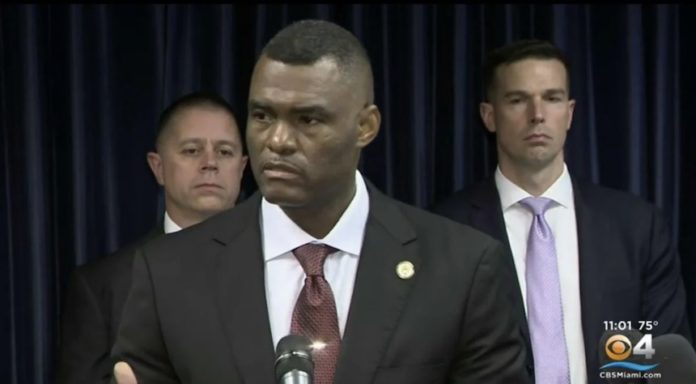According to the Department of Justice, there are thousands of nurses who have fake diplomas. The Department of Justice announced Wednesday that it had brought charges against over two dozen people accused in an illegal licensing scheme. This scheme issued unearned diplomas to aspiring nurses from three Florida nursing schools.
“Not only is this a public safety concern, but it also tarnishes the reputation of nurses who actually complete the demanding clinical and course work required to obtain their professional licenses and employment,” said U.S. attorney for the Southern District of Florida Markenzy Lapointe.
Lapointe said, “A fraud scheme such as this undermines public trust in the health care system.”
Three South Florida schools were involved in the alleged wire fraud scheme. It took place between 2016 and 2021. These schools have been closed.
The DOJ charged the accused with selling fake diplomas at approximately $15,000 each to aspiring nurses as an employment trick. Each defendant could spend up to 20 years in prison.
Illegal credentials may be used to allow nurses who are aspiring to become nurses to take the national nursing board exam. They would be able to obtain licenses after passing the exam and can then work in different states as registered nurses, licensed practice nurses, or vocational nurses.
CBS News reported that some nurses who bought the fake degrees went on to work in homebound care, assisted living facilities, and veterans’ affairs offices in Ohio, New York, New Jersey, Massachusetts, and Georgia.
Two Burlington County residents were charged by the DOJ with recruiting and soliciting aspiring nurses. They also worked with Eunide Sanon, Siena College, to “create and distribute fraudulent diplomas and transcripts.”
According to the DOJ, diplomas stated incorrectly that aspiring nurses had attended Broward County’s nursing program and taken all required courses. Prosecutors charged all three schools with participating in a similar scheme.
“Nursing, without doubt, is a highly skilled and ethical profession that requires rigorous and continuous education to gain unmatched clinical expertise. This is not something you can do overnight,” stated Jennifer Mensik Kennedy, President of the American Nurses Association. There are no shortcuts to nursing. Our patients and clients rely on us. This is a challenging and rewarding job that requires you to adapt to changing healthcare landscapes to provide safe and high-quality patient care.










